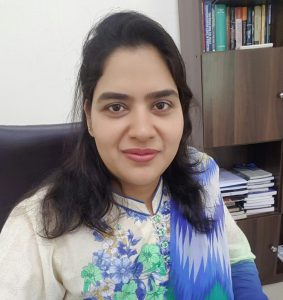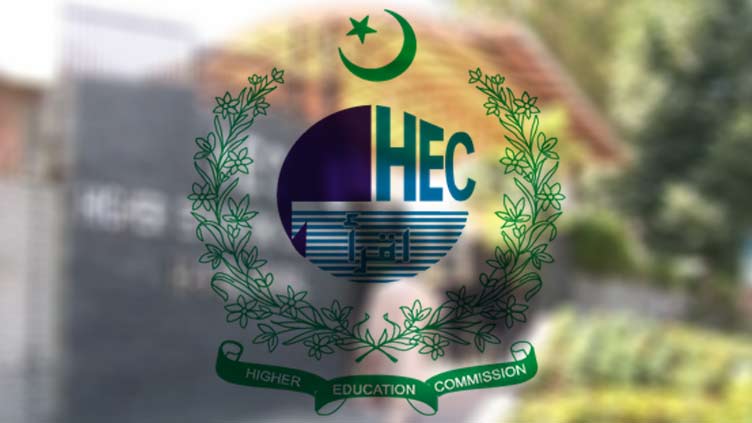Dr Lubna Zaheer
For the past several weeks, news has been circulating in the education circles that the federal government is planning to amend the Higher Education Commission of Pakistan Act. We all know that the Higher Education Commission (HEC) is an independent body with important powers. The position of its chairman is equal to that of a federal minister. Education experts fear that the commission’s independence will be affected after the new legislation, majority of its powers will be compromised, while the status of the Commission’s chairman will be reduced to that of a mere civil servant.
A few days ago I came to across a draft of the proposed amendments. A reading of the points in the draft shows that if the proposed amendments are sailed through, it will certainly reduce the powers of the Commission. One can assess the importance of the HEC that the responsibility of policy making related to higher education and monitoring of universities across the country rests on its shoulders.
Despite all the difficulties and problems, the said institution has contributed significantly to the promotion of higher education in Pakistan. In the previous government, this institution faced many difficulties. Its funds were severely slashed. Lack of funds increased the difficulties of universities. The then chairman, Dr Tariq Banuri was on the record, saying he was facing political pressures and interference from the Prime Minister House.
Eventually, Dr Banuri’s tenure was shortened and he was dismissed from the post. The commission’s performance was compromised as result of political games, impacting the country’s universities and higher education adversely. On the other hand, this institution and our education system were ridiculed all over the world.
There was a hope that in the presence of Prime Minister Shehbaz Sharif, the HEC would have stability and shortage of funds the Commission had would be addressed. But now we hear that the federal government wants to cut the wings of the institution. To me this issue needs much attention. Instead of weakening our institutions, we should strengthen them. If the commission is strong, it will help promote higher education in Pakistan. Weakening of the commission simply means weakening of the education system.
The autonomy of the commission is the guarantor of the autonomy of the universities. The powerlessness of the commission means the powerlessness of the vice-chancellors and universities. Therefore, this matter should be taken care of at the highest level. There’s a lot of concern in this regard among private and public universities. A few days ago, this story was echoed in the Rector’s Conference as well that was organized by the Association of Private Universities of Pakistan (APSUP). In the conference, the reforms of the education system, problems faced by higher education and their solutions were openly discussed.

The issue of reduction in powers of the HEC was particularly discussed. On this occasion, Prof. Dr. Abdul Rahman Sahib, the head of IPSEP, said that the difference between developing and developed countries is only because of their universities. Nowadays, wars are also fought on the basis of economy. We have to compete with India in terms of knowledge and economy. He said the recent amendments proposed in the HEC Act are tantamount to an attempt to destroy this institution. Stakeholders were not consulted regarding this amendment. Amendments made in closed rooms can never do good for this institution.
Dr. Mukhtar Ahmed, the HEC chairman, also explained the importance of independence and strength of federal and provincial commissions in his speech. Regarding the reduction in the powers of the Punjab HEC, he asked for giving power to this provincial commission and otherwise abandon it.
Punjab HEC Chairman Dr Shahid Munir also expressed his views in the conference and also opposed the amendment in the Higher Education Act. He said: “We will not tolerate the amendment in any case.” Dr Shahid Munir further said that the PHEC is suffering from difficulties. “Funds are scarce but still we fund private universities and public sector colleges.”
The chief guest of this conference Senator Irfan Siddiqui, who is chairman of the Senate Standing Committee on Education. Dr Abdul Rahman requested him to play his role, take up the matter of the HEC’s fate at the highest level and convey the government about the concerns among the vice chancellors, teachers and students of the universities across the country.
Senator Irfan Siddiqui supported the views of Dr Abdul Rehman, Dr Mukhtar Ahmed, Dr Shahid Munir and the Vice Chancellors and said there should be no politics on it. The senator said that institutions like the HECare built with a lot of hard work. “If the powers are taken away from the commission, all will be useless.” He assured that the suggestions made by the Chancellors’ Conference will be considered. Siddiqui promised that he would stand with the commission and the universities to ensure the independence of the HEC.
Irfan Siddiqui himself is also an educationist. He rightly raised the question that we should seriously think why we are going bankrupt, and why not our neighboring countries? We hope that the senator will take this matter to the highest level and play a role in ensuring the independence of the commission.
An important news regarding the higher education sector is that the Punjab government has appointed Superior University Rector Prof Dr Samira Rehman the member from Punjab chapter in the Higher Education Commission of Pakistan. She has always promoted the idea of giving jobs to the students. We hope that Dr Samira will fully represent the province of Punjab and its universities in the federal commission. She will make an important contribution in bringing the problems of public and private universities to the commission and getting them resolved.

— The author is an academician and political analyst
Disclaimer: The views expressed in this article are those of the author and do not necessarily reflect the official policy or position of Lahore Mirror

